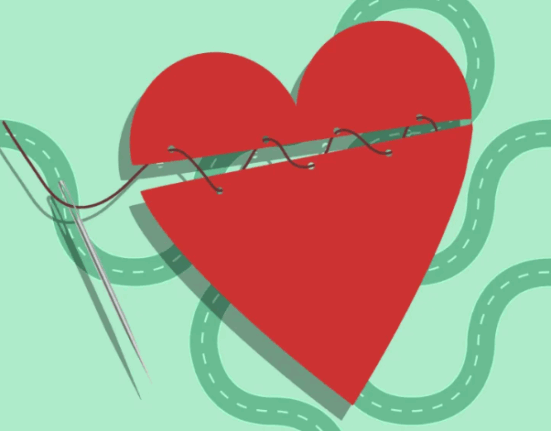Last Updated on July 6, 2023 by Rachel Hall
What’s the Difference Between Resolvable and Unresolvable Problems in Relationships?
When the Hindustan Times published an article about unresolvable issues that exist in relationships, I thought it would be discussing things like one partner not wanting children when the other does, or someone coming out as gay. There’s no way to change your sexual orientation, and although a person might change their mind about wanting kids, it’s best not to wait around and hope that happens. Both of these examples would cause a breakup, and it would probably be a fairly amicable one because there’s no blame or upset, just a fundamental incompatibility. It would be one of the few situations where you could remain friends.
Resolvable vs unresolvable
The Hindustan Times, however, lists off the following examples: how to spend free time; setting boundaries with in-laws; relationship style; level of socialness; cleanliness and organisation and financial habits. I strongly disagree with the idea that these are “unresolvable”. It might take some time, compromise, and clear communication, but these issues can be resolved. For example, one person might be more social than the other. The sociable person is welcome to go out (within limits) to see friends and family, whilst the recluse stays at home and enjoys some solitary activities. Provided both people are happy with the time they spend together, I fail to see the issue.

Issues which are hard to sort out
Financial issues and in-laws are more complicated. Both of these things have caused the demise of many previously-happy relationships. Financial issues can take many forms, from stinginess to undisclosed debt. There isn’t a clear answer to these problems, but openness and clear communication will help, as well as speaking with a financial advisor. Try to understand each other’s perspectives and figure out a budget which allows for essentials, luxuries and savings, so there’s security and things you need.
Your partner’s family
In-laws can be a real struggle, but they don’t need to end relationships. Setting clear boundaries and discussing things is a good idea. You can make changes as things go, depending on your partner’s feelings and your in-laws’ behaviour. The trouble with in-laws often starts because the new partner feels judged or pressured to behave in a certain way. It can be exhausting to be criticised by people, especially when you could be united by affection for your partner. If you can find common ground, then that’s wonderful, but remember that you’re allowed to have space from your partner’s parents.

What happens when you ignore issues?
Healthy relationships are going to have issues from time to time. Some of these can be solved with patience, communication and possibly outside help in the form of a counsellor, and others might mean that you’re not compatible and need to move on from the relationship. Allowing the unresolved conflict to remain and fester is unhealthy and can create toxic relationships. This is where you can get issues with jealousy, low self-esteem and, in particularly unpleasant cases, abuse.
Conclusion
I would recommend doing the following to solve issues in relationships. Firstly, work out if it’s resolvable or unresolvable. If your partner is gay and you’re straight, that’s unresolvable. If your partner is desperate for a baby and you don’t want children, that’s unresolvable. But if you and your partner have different ideas when it comes to money or socialising, then you can work out these issues. You don’t have to: if the work is too much, you can leave. However, if you’re willing to be open, compromise, and understand each other’s perspectives, your relationship will probably grow.

Rachel Hall, M.A., completed her education in English at the University of Pennsylvania and received her master’s degree in family therapy from Northern Washington University. She has been actively involved in the treatment of anxiety disorders, depression, OCD, and coping with life changes and traumatic events for both families and individual clients for over a decade. Her areas of expertise include narrative therapy, cognitive behavioral therapy, and therapy for traumatic cases. In addition, Rachel conducts workshops focusing on the psychology of positive thinking and coping skills for both parents and teens. She has also authored numerous articles on the topics of mental health, stress, family dynamics and parenting.








Leave feedback about this